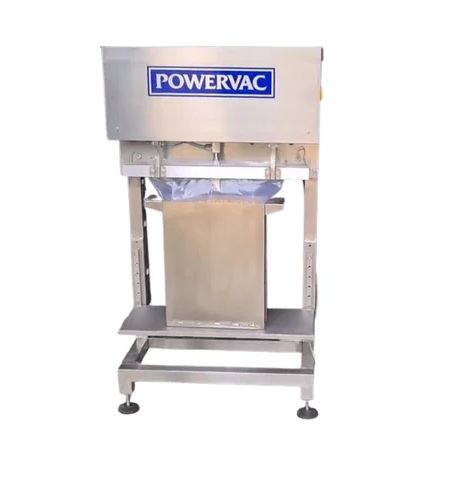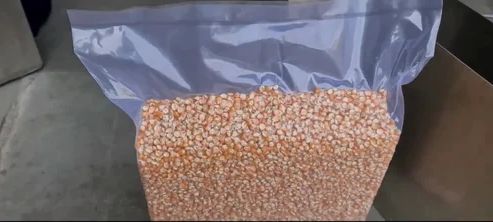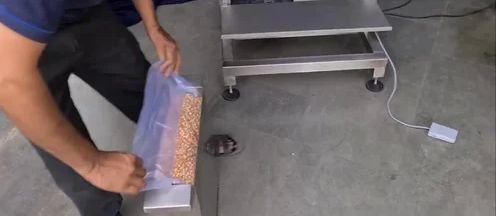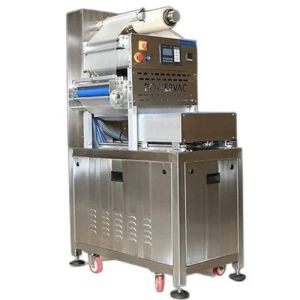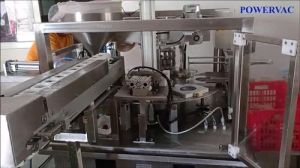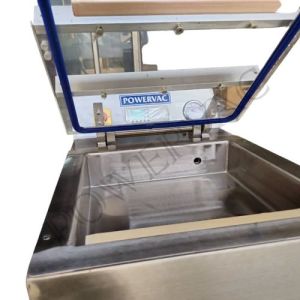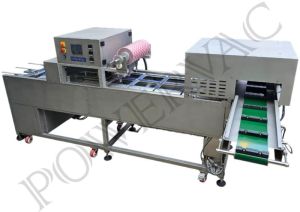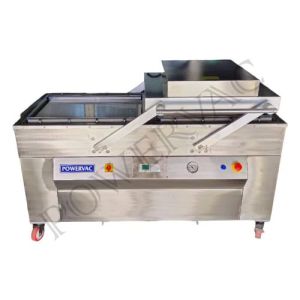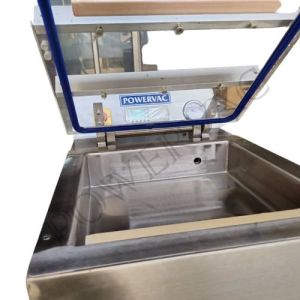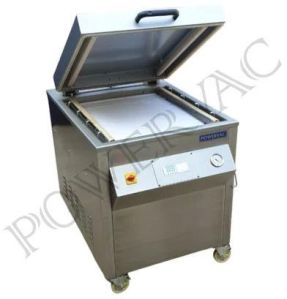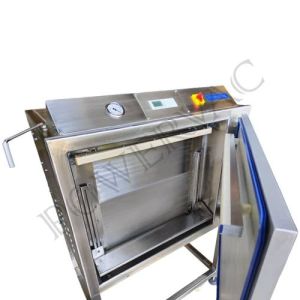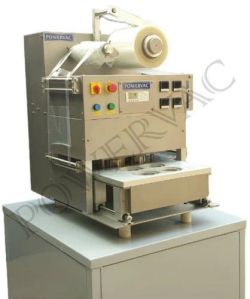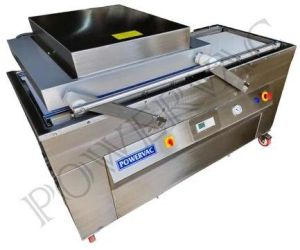Kathwada, Ahmedabad, Gujarat
- GST NO. : 24BAKPP1655H1ZM
| Business Type | Manufacturer, Exporter, Supplier |
| Brand Name | Powervac |
| Material | Stainless Steel |
| Driven Type | Electric |
| Click to view more | |
Preferred Buyer From
| Location | Worldwide |
Product Details
A nozzle-type chamberless vacuum packing machine is a type of packaging equipment used to remove air from packages or containers to extend the shelf life of food products or to protect other items from oxidation or spoilage. Unlike traditional chamber vacuum sealers that require a vacuum chamber, the nozzle-type chamberless machine uses a nozzle to remove air from the package directly.
Here's how a typical nozzle-type chamberless vacuum packing machine works:
1. Package Preparation: The item to be packed is placed in a specialized vacuum-sealing bag or container. The bag is typically made of a material that can withstand the vacuum sealing process and is compatible with the specific machine being used.
2. Sealing the Bag: The open end of the bag is placed under the sealing bar of the machine. The sealing bar applies heat to melt the bag and create an airtight seal.
3. Vacuuming: Once the bag is sealed, the machine activates the nozzle. The nozzle is inserted into a small opening in the bag, and a vacuum is created inside the bag by removing the air through the nozzle. This process can be achieved using a powerful suction mechanism or by displacing the air with an inert gas such as nitrogen.
4. Sealing the Nozzle Opening: After the air is removed, the nozzle is withdrawn, and the small opening where the nozzle was inserted is sealed. This ensures that the package remains airtight.
5. Completion: The vacuum-sealed package is now ready for storage, shipping, or display. The absence of air inside the package helps preserve the freshness and quality of the product, reduces the risk of spoilage, and can also prevent the growth of bacteria or molds.
Nozzle-type chamberless vacuum packing machines are commonly used in the food industry, particularly for packaging perishable items such as meat, fish, cheese, and vegetables. They can also be used for non-food applications, such as packaging electronic components, pharmaceuticals, and other sensitive items that require protection from moisture or air exposure.
Looking for "Nozzle Type Chamberless Vacuum Packaging Machine" ?
Explore More Products


